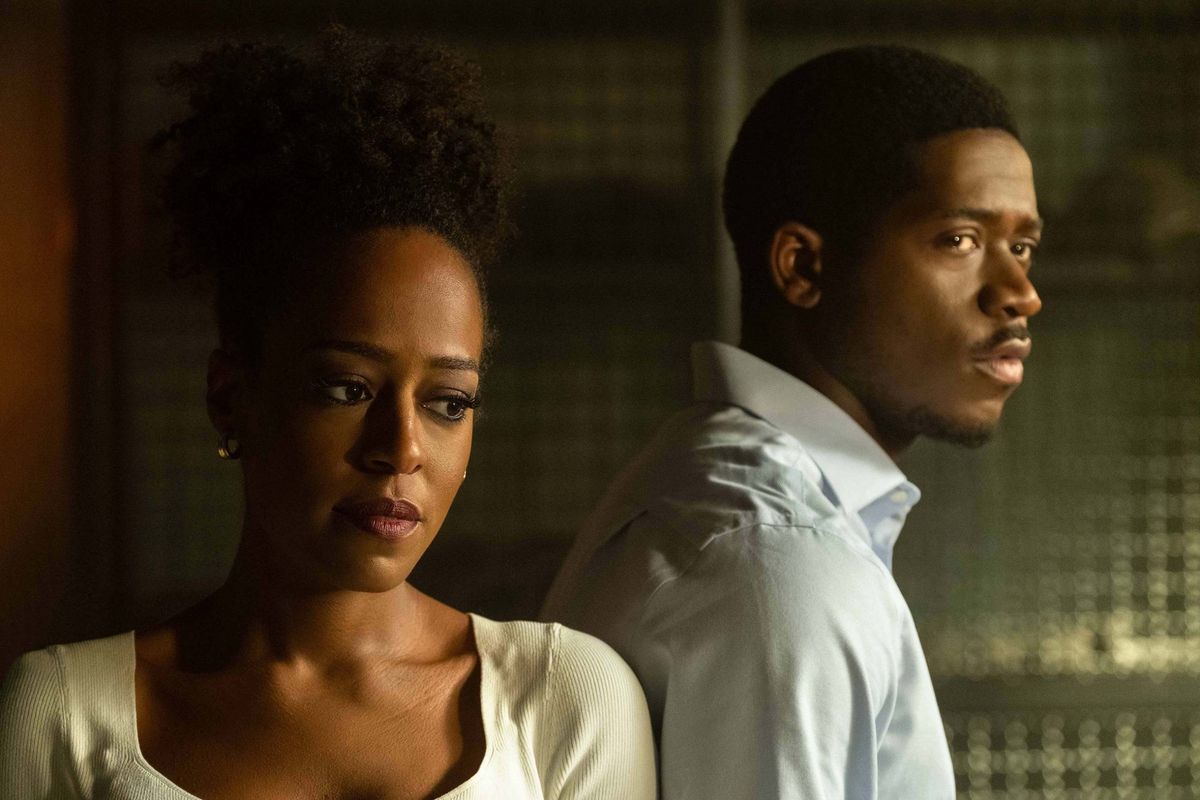
Snowfall
SNOWFALL “Projects Boy” — Season 6, Episode 4 (airs Wednesday, March 8th) — Pictured: (l-r) Devyn Tyler as Veronique, Damson Idris as Franklin Saint. CR: Ray Mickshaw/FX.

In a 2009 study of crack cocaine, researchers concluded that “inhalation causes extensive histological changes along the entire respiratory tract.” For users like Wanda Bell, for instance, the physical effects are obvious. Gail Bean, who’s played one of the most aesthetically deformed characters on modern television, shows how devastating crack can be to once impeccable skin, hair, and nails. But the internal damage of crack empires is a more worthwhile document and the final season of Snowfall concerns itself with peeling back those layers.
How does crack corrode the moral fiber of families, the integrity of communities? What would we do if the government, addicted to its own power, used toxic fumes to destroy us brick by brick? The only way to tell a global story is to focus on a local one. Franklin Saint, in one of his true returns to form, gets back on the stove to cook crack rocks. Unsatisfied with profit losses and slack partners, he’s decided to roll up his sleeves, dirty his hands, and rage against the failing ethic of one specific crack house. No matter how devastating crack’s been to his daily life — his father’s dead, his uncle is out to kill him, he’s lost his fortune — he refuses to give it up. Franklin is proof the resulting decadence became as addictive as the piles of cash it produced.
This Snowfall episode, "Projects Boy," presents symbols of that decadence in neighborhood moments. Wanda returns for the clothes she’s left behind, scaring Cissy so much there’s almost a tragic accident. Leon tries to restore the shattered playground lights, thrusting him into a literal fight for his life against successor Deon. Vee and Cassandra risk their relationship and their lives to find Franklin’s long-gone revenue. Over and over, the characters make choices that harm them, chip away at their sense of belonging to a social contract, and, over and over, Franklin and Teddy distance themselves from the consequences of their cold refusal to account for damage.
As the descent of CIA and DEA agents stretch and knot them like overworked tendons, the major figures strive for more destruction. And now, it’s in the name of pride over prosperity. Every attempt to restore the good of South L.A. will be thwarted by some Franklin tantrum. To that end, he burns a soldier’s face (and eventually kills him when he seeks revenge), under the guise of repairing the workflow. Like the Henry Ford of the crack game, he values productivity over loyalty, not once considering how one man, one cog in the wheel could end everything. Typically, he flees the scene in a bid for survival in contrast to Leon, who sticks it out in a gruesome brawl, regaining the respect of onlookers. But in the upside-down world of criminal greed, cowardice looks like power. That’s kept Franklin and Teddy good for far too long. Clearly, the clock expired on that trend.
__
Andrew Ricketts is a writer from New York. He wants to tell the story you share with a friend.